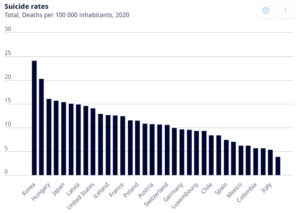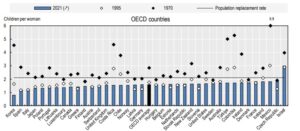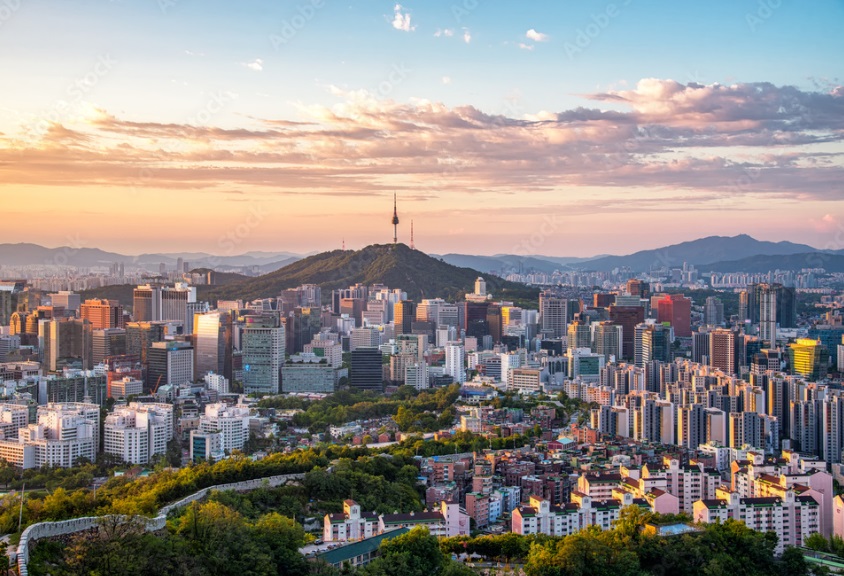With the rise of Korean TV shows and music, Korean culture has gained worldwide popularity. Many international visitors now frequent Korea, enjoying its big cities, cuisine, and interactions with Korean people. While they might be aware of the conditions in which Koreans live, I don’t believe they fully understand what it means to live in Korea as a true Korean.
“No. 1 suicide rate among OECD countries”
“Lowest fertility rate among OECD countries”
“Ranked 34th out of 37 OECD countries in the happiness index”
“A society filled with hatred”


People living in Seoul, Korea’s largest city, are struggling with a highly competitive and densely populated environment, leading to widespread unhappiness.
There are several reasons why Koreans might feel like they are living in a challenging environment. These can be explained through both historical experience and cultural perspective.
Experience
Korea has undergone the fastest economic development in the world. During this period of growth, Koreans were willing to sacrifice their quality of life, believing that providing for their families would bring happiness. Overtime work was common, and human rights were sometimes overlooked. Eventually, Korea achieved miraculous economic development, and people became wealthier.
However, in 1998, Korea faced a financial crisis that led to the bankruptcy of the government and many large conglomerates. People who had experienced dramatic economic growth lost their jobs and financial security. Many committed suicide. Although the Korean government repaid all debts and returned to economic growth, this traumatic experience left a lasting impression on Koreans. It seemed to me that this was the beginning of the belief that money is the most important factor for keeping our lives safe.
Culture
Collectivism is a significant aspect of Korean society. In this context, people are afraid to be different from those around them. Comparing and judging each other is common, and a standard of successful life is based on social agreements. People fear they might not be able to follow a successful life path and are caught between the life they want to live and the life society dictates.
For example, people are too self-conscious to eat lunch alone because others might judge them for not having friends to eat with.
People choose their companies based on reputation and salary, not on what they enjoy or want to become.
People choose their university majors based on potential job offers, not on their interests.
Both historical experiences and cultural context create a synergy that drives Koreans to extreme stress. There is no freedom to choose a different kind of job or life, as survival depends on following the money. Quality jobs that pay well are very limited, and people compete fiercely for them, regardless of their interests. Everyone feels that owning a house is essential and strives to buy one someday, but housing prices are skyrocketing. People are unhappy, constantly comparing themselves with friends and colleagues who seem to be in better situations.
As someone who lived in the United States for five years and has now been living in Seoul for over thirty years, I would like to share my thoughts on living in Korea as a genuine Korean. Although my experience in the United States was different from my experience in Korea, I still don’t believe I genuinely understood what it means to live in the United States as an American. A foreigner’s experience can be superficial and different because people usually want to make a good impression on foreigners.
From today, I will regularly upload information about my thoughts on living in Korea and answer any questions I receive.
